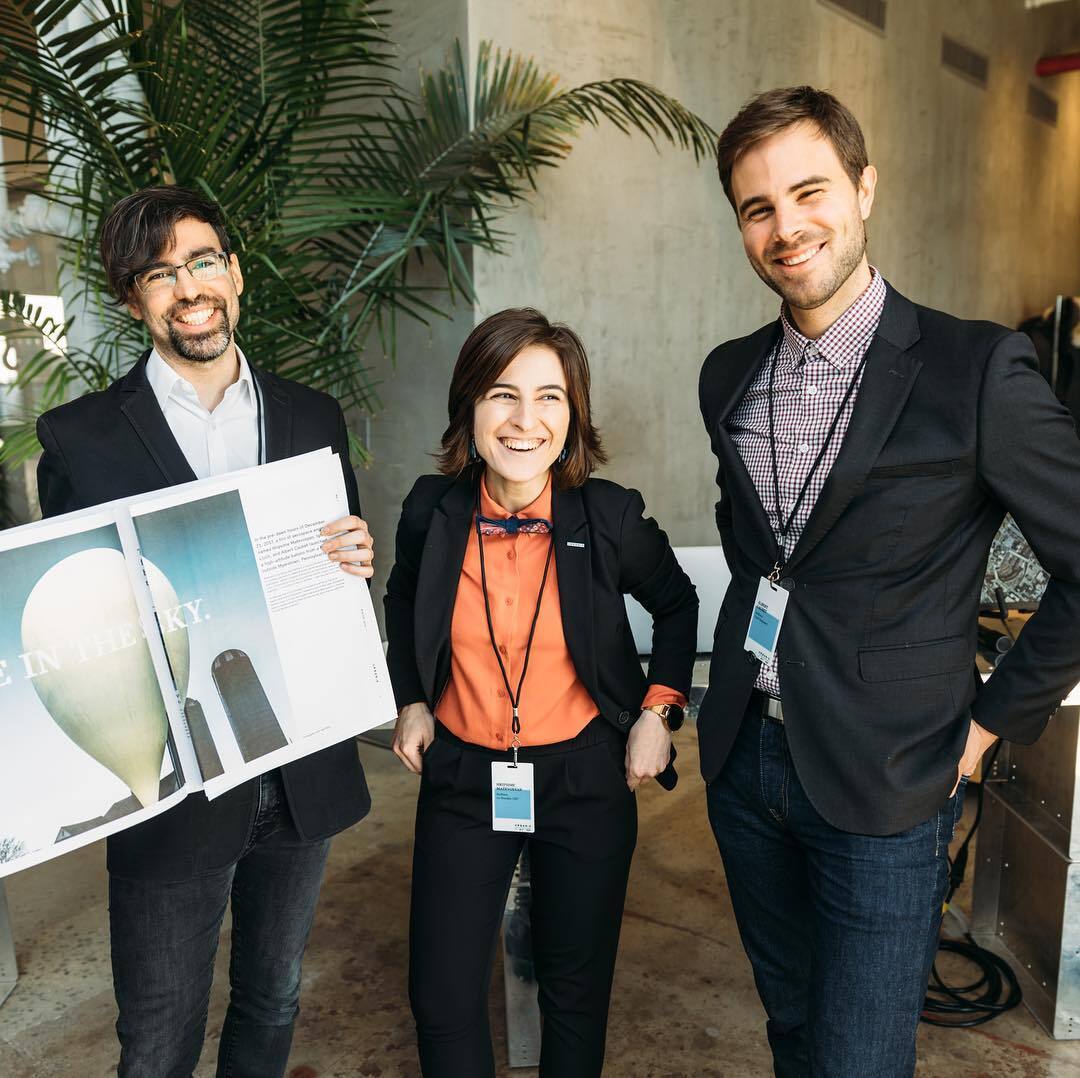The decreasing cost of launch and a slew of other tech innovations have brought about a renaissance in geospatial intelligence, with multiple startups aiming to capture higher-quality and more frequent images of Earth than have ever before been available.
Most of these startups, however, are focused on using satellites to collect data. Not so for Near Space Labs, a four-year-old company that instead aims to gather geospatial intelligence from the stratosphere, using small autonomous wind-powered robots attached to weather balloons. The company has named its platform “Swifty,” and each one is capable of reaching altitudes between 60,000 and 85,000 feet and capturing 400-1,000 square kilometers of imagery per flight.
The company was founded in 2017 by Rema Matevosyan, Ignasi Lluch, and Albert Caubet. Matevosyan, who is an applied mathematician by training and previously worked as a programmer, did her Masters in Moscow. There, she started doing research in systems engineering for aerospace systems and also flew weather balloons to test aerospace hardware. “It clicked that we can fly balloons commercially and deliver a much better experience to customers than from any other alternative,” she told TechCrunch in a recent interview.
Four years after launch, the company has closed a $13 million Series A round led by Crosslink Capital, with participation from Toyota Ventures and existing investors Leadout Capital and Wireframe Ventures. Near Space Labs also announced that Crosslink partner Phil Boyer has joined its board.
Near Space, which is headquartered in Brooklyn and Barcelona, Spain, is primarily focused on urbanized areas where change happens very rapidly. The robotic devices that attach to the balloons are manufactured at the company’s workshop in Brooklyn, which are then shipped to launch sites across the country. The company’s CTO and chief engineer are both based in Barcelona, so the hardware R&D takes place over there, Matevosyan explained.
The company currently has eight Swifies in operation. It sells the data it collects and has developed an API through which customers can access the data via a subscription model. The company doesn’t need to have specific launch sites – Matevosyan said Swifties can launch from “anywhere at any time” – but the company does work in concert with the Federal Aviation Administration and air traffic control.
The main value proposition of the Swifty as opposed to the satellite, according to Matevosyan, is the resolution: from the stratosphere, the company can collect “resolutions that are 50 times better than what you would get from a satellite,” she said. “We are able to provide persistent and near real-time coverage of areas of interest that change very quickly, including large metro areas.” Plus, she said Near Space can iterate it’s technology quickly using Swifties’ “plug-and-play” model, whereas it’s not so easy to add a new sensor to a satellite fleet that’s already in orbit.

Near Space Labs founders (from left): Ignasi Lluch, Rema Matevosyan and Albert Caubet Image Credits: Near Space Labs (opens in a new window)
Near Space has booked more than 540 flights through 2022. While customers pay for the flights, the data generated from each trip is non-exclusive, so the data can be sold again and again. Looking ahead, the company will be using the funds to expand its geographical footprint and bring on a bunch of new hires. The goal, according to Matevosyan, is to democratize access to geospatial intelligence – not just for customers, but on the developer side, too. “We believe in diverse, equal, and inclusive opportunities in aerospace and Earth imaging,” she said.
from Startups – TechCrunch https://ift.tt/3EE4Yec
Comments
Post a Comment